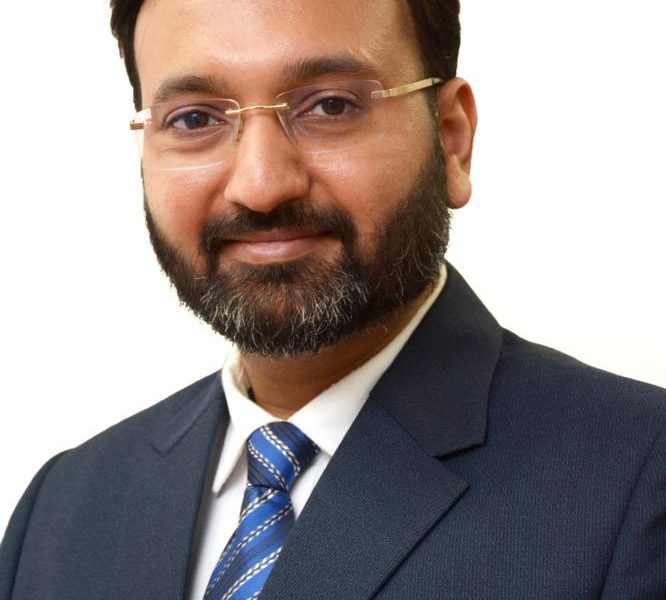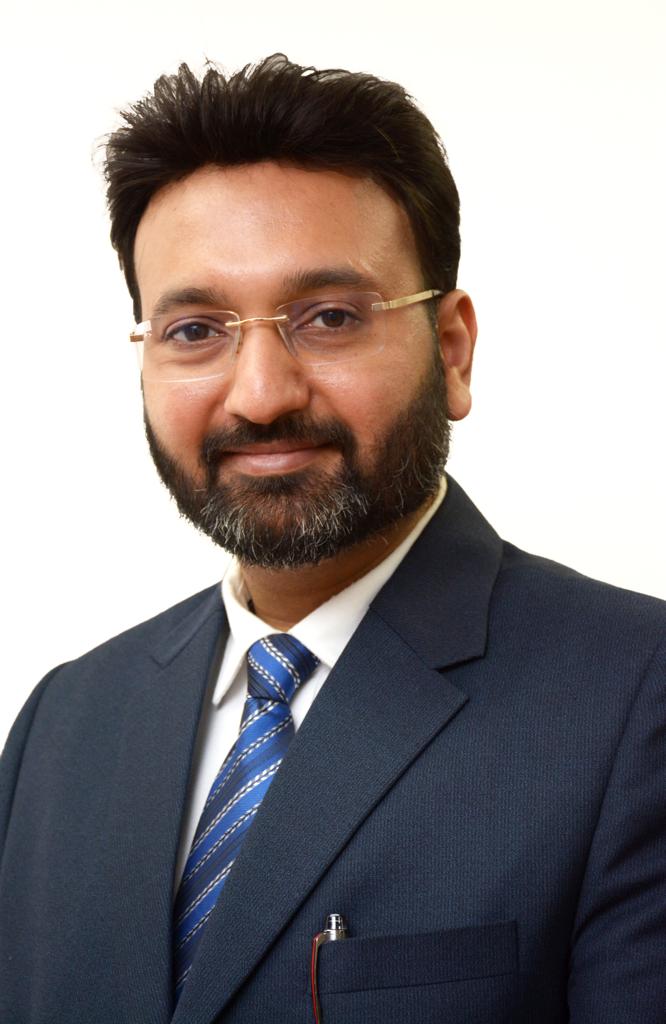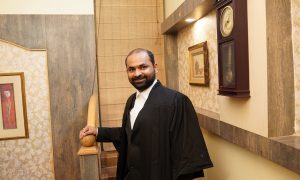This interview has been published by Priyanka Karwa and The SuperLawyer Team

To start our conversation on a lighter note, we would like to know why did you choose to be a lawyer?
From a young age, I was drawn to the idea of a profession that would allow me to serve others while also growing and developing as a person. As I progressed through my higher education, it became clear to me that law was the ideal field to achieve these goals. I would say, one of the most rewarding aspects of being a lawyer is the continual learning that comes with the job. Every day presents new challenges and opportunities to expand one’s knowledge and skills. Whether I’m studying a complex legal issue or working on a case, I am constantly pushed to think critically. That feeling of being pushed to think critically and the feeling of ‘rush’ that comes along with it is what gets me stoked to be a lawyer. In addition, being a lawyer also provides me with a sense of purpose and fulfilment. By using my legal expertise to assist clients and advocate for justice, I can make a positive impact on society. Whether I’m working on a high-stakes commercial matter or representing an individual, I am driven by the knowledge that my work is making a meaningful difference in the lives of others. Ultimately, my passion for the field of law stems from the fact that it allows me to combine my desire to learn and grow with my commitment to serving others. It is a challenging and demanding field, but I believe that the rewards of being a lawyer far outweigh the challenges.
We understand that you have so many distinguished accolades attached to your name, especially in the field of arbitration. Please tell our audience about your illustrious career as an arbitrator.
My passion for arbitration as a career was ignited during my tenure as an assistant to retired Hon’ble Justice M.S. Rane. Witnessing the transformative power of arbitration in resolving disputes sparked a deep interest within me, and I knew that this was the field that I wanted to pursue. My interest in arbitration only grew as I pursued my LL.M. from the prestigious Queen Mary, University of London, UK, where I studied Oral and Written Advocacy in Arbitration as well as International Commercial Arbitration law. This formal education not only sharpened my skills but also gave me a broader perspective on the field.
Since 2004, I have had the privilege of working in the field of Arbitration in a wide range of disputes, including complex commercial disputes, construction disputes, intellectual property disputes, technology law, Aviation law, Maritime disputes, etc. My expertise in the field has been recognized through various accolades and appointments. In the last 8 years, I have had also the privilege of serving as an independent Arbitrator and I am presently empanelled with more than 26 institutes as an Arbitrator in Asia, the UK, and the Middle East. In addition, I am also actively involved in promoting the field of arbitration and advocating for its benefits as a dispute resolution mechanism. I have been invited to speak at various conferences and seminars on the topic. I am proud to have been working in this field and am eager to continue making a positive impact through the transformative power of arbitration.
Being in the Arbitration profession since 2004, what were some of the defining moments?
In my career, I have had many defining moments that have shaped my professional journey in the field of Arbitration. From representing noteworthy real estate developers and high net-worth individuals to businesses and entrepreneurs from diverse sectors of the business community, I have had the privilege of working with some of the best lawyers in the field. However, one particular case stands out as a truly fascinating experience.
I had the opportunity to work on a case that involved a manufacturing defect in an Aircraft and the failure of the landing gear in a new Aircraft. This case not only challenged me as a lawyer, but also allowed me to push myself to the limits of my knowledge and expertise in dealing with Arbitration cases and ICC Rules. It required me to think outside the box, exercise creative problem-solving skills, and work collaboratively with a team of experts to achieve a favourable outcome for my client.
It was a defining moment in my career, as it taught me the importance of perseverance, adaptability, and strategic thinking. This experience helped me grow both as a lawyer and as an Arbitrator, and I am grateful for the lessons learned.
Overall, my journey has been filled with many defining moments, each one contributing to my growth and development in unique ways. I look forward to continuing this journey, embracing new challenges, and striving for excellence in everything that I do.
Since Arbitration is a growing field in our country, what is the major difference in other jurisdictions/countries compared to India? How do you look at the potential in this field for law practitioners in India?
Arbitration has become increasingly popular in resolving disputes in India, as well as in other jurisdictions/countries. In fact, the Bar Council of India opening up avenues for foreign law firms in India and allowing Foreign lawyers to appear for their clients in International Commercial Arbitration will definitely allow India to be one of the hubs of International Commercial Arbitration.
However, there are some notable differences between the practice of arbitration in India and other countries. One major difference I would like to point is the level of institutional support for arbitration. In some countries, such as UK, France, Switzerland, Singapore and Hong Kong, there are well-established institutions that provide administrative support and expertise in arbitration. These institutions have established rules and procedures for resolving disputes, which can make the process more efficient and reliable. Another difference is the extent to which the courts are involved in arbitration proceedings. In some countries, such as the UK and Singapore, the courts are heavily involved in the arbitration process and can play a significant role in enforcing arbitration awards.
In terms of potential for law practitioners in India, the growing field of arbitration presents a significant opportunity. As businesses in India increasingly seek to resolve disputes through alternative means, there is a growing demand for legal professionals with expertise in arbitration. This can include both lawyers who specialize in dispute resolution as well as those who have experience in related areas such as international trade and investment. Overall, the potential for law practitioners in India in the field of arbitration is significant. However, it is important for practitioners to stay up-to-date with developments in this area and to develop the necessary expertise and skills to succeed in this growing field.
As you are pursuing a PhD, how do you manage your workload and maintain a balance between your academic responsibilities, work, and life?
Balancing work, education, and personal life can be a challenging task, but it is essential to ensure that I am productive, efficient, and not compromising on my personal life. To balance these three aspects, I follow a few key strategies: First, I plan and prioritize my tasks by making a to-do list and scheduling my day accordingly. This helps me stay organized and ensures that I am making the most of my time. Second, I set realistic goals for myself, both short-term and long-term, and try to achieve them. This helps me stay motivated and focused on what I want to achieve. Third, I manage my time effectively by avoiding procrastination, limiting distractions, and making the most of my productive hours. I take short breaks in between work or study sessions to refresh my mind and avoid burnout. Fourth, I seek support from family, friends, or colleagues if needed to ease the workload and reduce stress. Finally, I maintain a healthy work-life balance by making time for myself, spending quality time with family and friends, exercising regularly, and pursuing hobbies that help me relax and rejuvenate, for e.g. picking up a sport like Tennis helped a lot. Overall, finding the right balance between work, education, and personal life is essential to avoid stress and burnout. By following these strategies, I am able to balance these three aspects and achieve my goals while also taking care of my personal life.
To wrap this conversation up, what advice would you give to legal professionals in their initial years?
To all young lawyers, I would like to emphasize the importance of merit and perseverance in achieving success. While it is true that smart work is crucial in today’s fast-paced world, however, it cannot be a substitute for hard work and effort. It is essential to put in the effort to maximize your potential and achieve your goals. For instance, if you aspire to practice in the field of Arbitration, you must dive deep into the legal and business aspects of the field. You cannot simply skim the surface; you must understand all the consequences and have the ability to listen fairly and impartially to a dispute before issuing a legally binding award. This level of expertise comes with experience, and gaining that experience requires hard work and dedication. So, my message to all young lawyers is this: strive for excellence and put in the necessary effort to achieve your goals. With perseverance, dedication, and a commitment to constantly improve, you can achieve great things in your career and beyond.
Get in touch with Ish Jain-
























